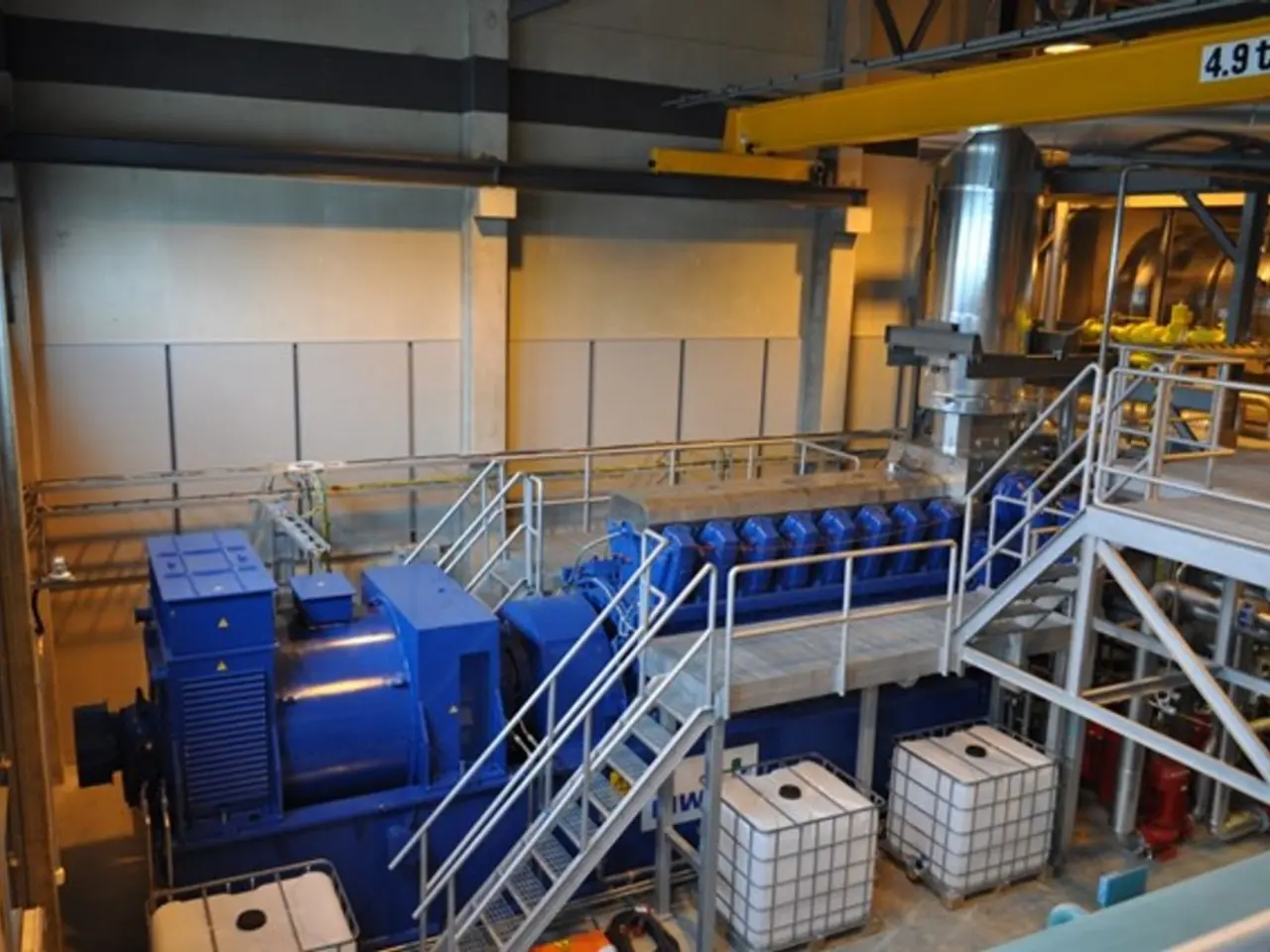"Moving Forward Together": Fiscal Ministers Embrace Infrastructure Billions
State finances ministers of the Länder disburse billions towards infrastructure projects.
Facebook Twitter WhatsApp Email Print Copy Link
Finance ministers from the three major parties—Union, SPD, and Greens—have agreed to invest a staggering 100 billion euros in local infrastructure, with additional funds from special and climate funds. Before the coalition agreement even takes effect, these funds will be divvied up among the country's states.
Construction projects, crediting options, and more—the debt allocation marks the federal states' collective agreement on their new debt capacity. The finance ministers propose the Königstein key, which considers tax revenue and population data, as a benchmark for allocating funds. Marcus Optendrenk, CDU Finance Minister Conference chairman, describes this as a "pragmatic and stable" regulation.
These debt-financed 100 billion euros will benefit communities and municipalities, offering future borrowing opportunities for the states at 0.35% of GDP (approximately 15 billion euros this year).
The Economy Hopes for a Fresh Start
Lars Klingbeil, the Federal Finance Minister, joins the meeting, expressing the economy's top priority: a swift agreement among the states. Michael Schrodi, the Parliamentary State Secretary in the Federal Ministry of Finance, echoes Klingbeil's sentiment, stating, "The states are on the starting line now, and we can get going." The ministers will now delve into the finance ministers' proposal. The Bundestag is expected to discuss a proposed bill before the summer break.
North Rhine-Westphalia Leads the Pack
The Königstein key combines two-thirds of tax revenue and one-third of the states' populations, resulting in a yearly recalculation. With its big population, North Rhine-Westphalia bags the largest share of around 21 billion euros.
Green Party member Silke Schneider, Schleswig-Holstein's Finance Minister, exclaims this move a clear signal, "I expect the federal government to now act swiftly to enact the necessary implementing laws, as the states require budgetary certainty." Schleswig-Holstein anticipates its share to be roughly 3.5 billion euros.
A Decade of Investment Tackles Infrastructure Woes
Doris Ahnen, Finance Minister of Rhineland-Palatinate, views the proposed investment as a "decade-long endeavor" to upgrade public infrastructure to competitive standards. The examination showed that such an effort is beyond the reach of the current budgets.
The states are in unison like never before, demanding further funding for local programs, supplemented by funds from the special fund and climate transformation fund, in addition to the state share. Ahnen stresses the dire needs at the municipal level, emphasizing that the 100 billion euros should also benefit municipalities.
Before coalition talks, the Union, SPD, and Greens managed to expand Germany's borrowing capabilities despite the debt brake. The debt brake was eased for defense spending, and a special fund with up to 500 billion euros in loans was created to finance dilapidated infrastructure repair - such as bridges, energy networks, roads, and schools.
A Brighter Future Forecast: German Economy Shrugs off Stagnation
100 billion euros are earmarked for climate protection, with another 100 billion allocated to the federal states. The method of distribution among states still needs to be legislated in a second law. The new Finance Minister, Lars Klingbeil, has vowed to expedite this process. The bill will then need approval from both the Bundestag and Bundesrat.
The Basic Law mandates that states report their usage of these funds to the federal government, and the federal government is authorized to verify whether the funds are being used appropriately.
Source: ntv.de, as/dpa
- Infrastructure Investments
- Lars Klingbeil
- Fiscal Minister
- Federal States
- Special Fund
- The fiscal minister, Lars Klingbeil, has vowed to expedite the process of legislating the method of distribution among states for the 100 billion euros earmarked for local infrastructure.
- After the coalition agreement, these funds will be divvied up among the country's states, benefiting communities and municipalities, offering future borrowing opportunities for the states.
- Marcus Optendrenk, CDU Finance Minister Conference chairman, describes the finance ministers' proposal using the Königstein key as a "pragmatic and stable" regulation for allocating funds.
- The proposed investment of 100 billion euros is a "decade-long endeavor" to upgrade public infrastructure to competitive standards, and the states are in unison like never before, demanding further funding for local programs, supplemented by funds from the special fund and climate transformation fund, in addition to the state share.




